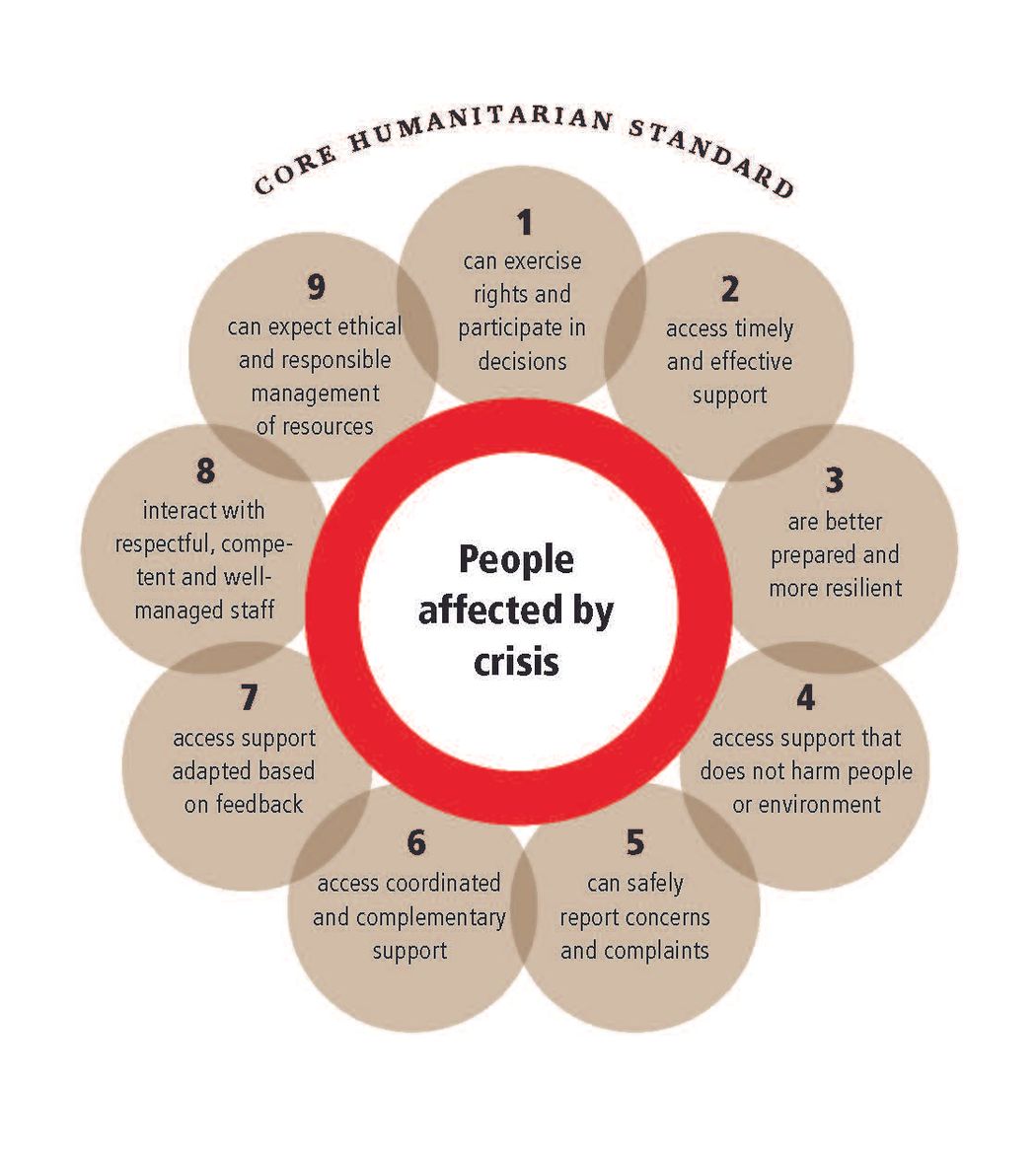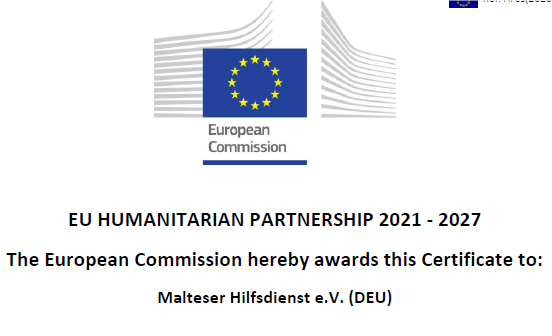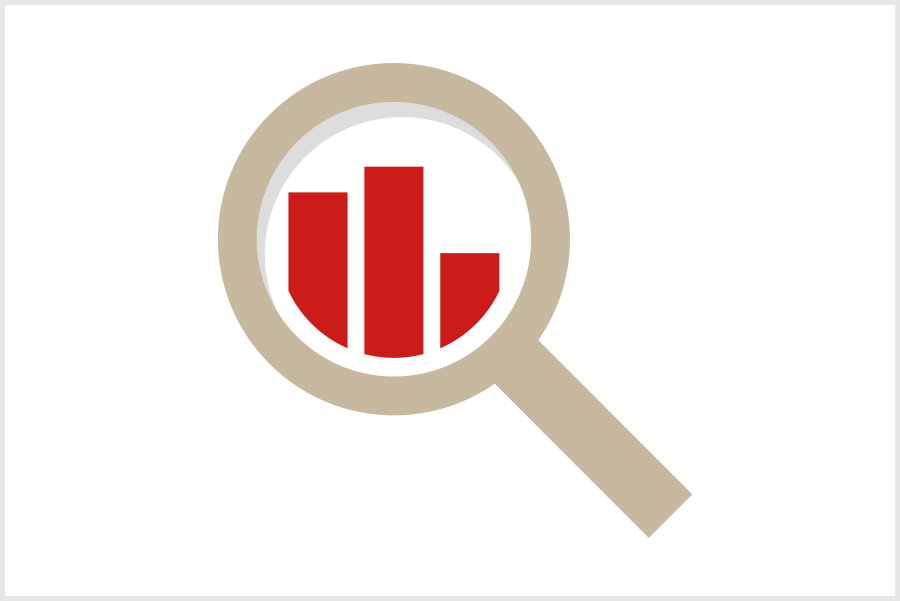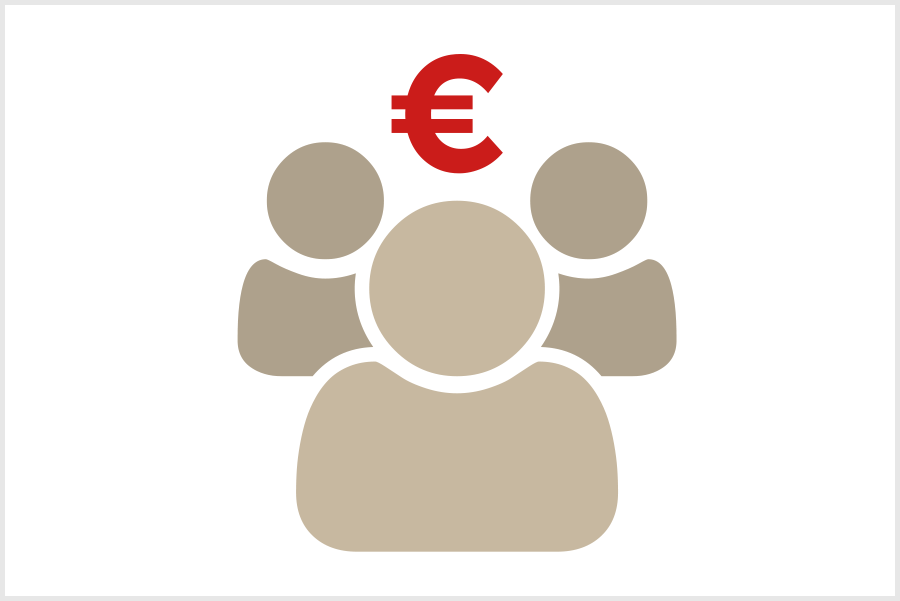Standards
As well as making sure that our work adheres to minimum quality standards, we constantly seek to improve the quality of our work wherever and whenever we can. To do this, we have subscribed to the following national and international Codes and Standards of practice:
- Core Humanitarian Standard on Quality and Accountability:
www.corehumanitarianstandard.org - The Code of Conduct: Principles of Conduct for the International Red Cross and Red Crescent Movement and NGOs in Disaster Response Programmes:
www.ifrc.org - The Sphere Project: Humanitarian Charter and Minimum Standards in Disaster Response:
www.sphereproject.org - The VENRO transparency, leadership and accounting code of conduct:
www.venro.org - The twelve basic rules of humanitarian aid, as agreed by the the German Federal Foreign Office's Humanitarian Aid Coordinating Committee: www.help-ev.de/humanitarian-standards

Quality control
In order to maintain the high level of quality that we are committed to in our work, regular quality control measures are essential. These include:
- Regular project monitoring to assess the effect of our aid projects, allow us to ensure that they are working effectively and meeting their goals.
- A robust financial controlling system to ensure the smooth running of our projects, which are all implemented according to the high standards of our public and institutional donors, who require high levels of cost transparency. Our ongoing controlling process ensures that budgets are adhered to, and that funds are used properly. There is an emphasis on the management of liquidity and financial coverage. We achieve this by using a double entry accounting system, on the one side assessed in accordance with the German Commercial Code, and on the other through a clear allocation of all transaction according to the projects and budget lines of our donors on the other.
- In addition, our Internal Auditing department supervises all of our activity both at home and abroad, and ensures that it adheres to the relevant guidelines, and internal controlling and risk-management protocols.
The EU Humanitarian Partnership Certificate
In 2020, Malteser International successfully renewed its partnership with the European Commission for another seven years (2021-2027) and was awarded the ECHO Partnership Certificate 2021-2027. The EU humanitarian partnership certificate is awarded to organizations deemed suitable to apply for EU funding. For this purpose, Malteser International underwent a comprehensive audit by external audit firm Deloitte which was concluded with an outstanding result (9.8/10). The certificate also expresses the European Commission's confidence in Malteser International to implement humanitarian aid according to high quality standards on the programmatic and operational level.
Malteser International successfully completed the audit of the German Federal Foreign Office's quality assurance requirements

Malteser International successfully completed the audit of its quality profile as part of the German Federal Foreign Office's (AA) quality assurance requirements. In order to standardize quality assurance in humanitarian aid, the AA examines and evaluates the work of humanitarian aid organizations on the basis of a set of defined benchmarks, including standards for monitoring, the implementation of localization, compliance with due diligence, and the promotion of gender equality and inclusion.
Putting people at the center of our humanitarian aid
Aid organizations have often ignored the voices of the very communities they seek to support and do not involve them meaningfully in activities that concern them. The commitment to put people at the center of humanitarian aid therefore has the potential to be truly transformational and to ensure more effective and efficient aid responses. Based on the understanding that the people we aim to assist need to be informed and listened to, so that they are able to define their own needs and take ownership of the assistance provided, we have been working with participatory approaches for many years.
One of these approaches is the People First Impact Method (P-FIM). P-FIM puts the people at the center of the response, giving the community a voice. The goal is to understand the perception and values of a community, as well as the solutions its members are already implementing to address existing challenges.
Learn more about how we are using P-FIM in our work:
Video: Empowering engagement: How listening puts people first | Get to know P-FIM community communication
- Read our article: DR Congo: People First Impact Method (P-FIM) in Ebola and Covid-19 Response
- Download: “External and independent evaluation of the People First Impact Method” by Ralf Otto, commissioned by Malteser International with financial contribution from the German Relief Coalition (Aktion Deutschland Hilft), February 2020
- Find more information, reports and toolkits on the P-FIM website.
Read more about:
Transparency













